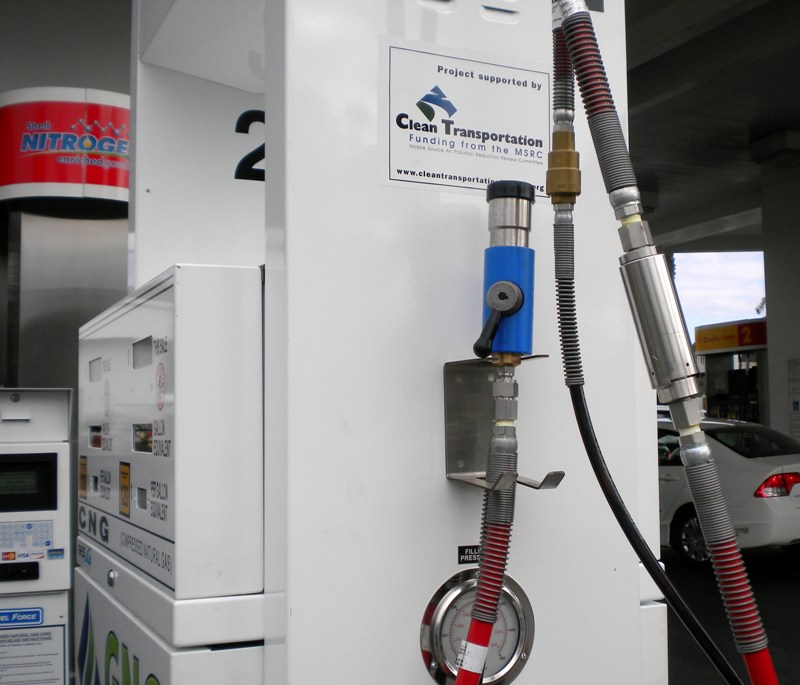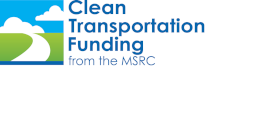
Embarking on its 20th year, the MSRC has announced its latest Work Program, providing more than $5.65 million in Clean Transportation Funding for two tried-and-true programs and one which revisits a promising strategy. The MSRC's Work Program is comprised of the projects it will fund during the upcoming fiscal year. The MSRC previously awarded $7.6 million in FY 2009-10 funding through its Local Government Match Program.
The MSRC's FY 2009-'10 Work Program continues two very popular programs: incentives for alternative fuel heavy-duty vehicles and for alternative fuel infrastructure. The 2010 Emissions-Compliant Alternative Fuel Engine Program is offering $2.35 million in incentives to owners of on-road heavy-duty vehicle fleets who purchase vehicles equipped with alternative fuel engines certified at the 2010 0.2 g/bhp-hr NOx standard or who re-power their existing vehicles with new "0.2 gram" engines. Award recipients can receive up to $50,000 per vehicle, depending on the size of the engine. The purpose of this program is to encourage owners of these vehicles within the South Coast region to purchase the lowest-emitting heavy-duty engines commercially available. Applications were being accepted as of January 19 and are due no later than February 9. Applications submitted on January 19 qualified for "first day" funding consideration, giving these applications a greater chance of being funded, as compared with those submitted after that date.
The Alternative Fuel Infrastructure Program has $3.15 million available to assist in the construction, upgrade and expansion of alternative fueling infrastructure regionally. Qualified applicants can receive up to $500,000 for the construction of a new station, depending on the type of station, and up to $300,000 to upgrade and expand an existing station. Eligible alternative fuels include CNG, LNG, L/CNG, hydrogen; and hydrogen/natural gas blends. Proposals are due by February 9.
The MSRC is also revisiting a past project category - "telework" - to see whether the time is ripe to revamp and implement this strategy. Since the MSRC's original exploration of this strategy more than a decade ago, advances in communication technologies have virtually eradicated practical barriers to telework."Telework," "telecommuting," "flexible workplace," "remote work," "virtual work," and "mobile work" are all terms used to describe work done away from the traditional office environment. There are many benefits of telecommuting. The MSRC particularly is interested in telework programs because working remotely can directly reduce mobile source emissions by eliminating the daily work commute. By eliminating a trip made be a single-occupant vehicle, thereby cutting back on fuel consumption, both air pollution and greenhouse gas emissions from that vehicle are reduced directly, and roadway congestion is alleviated, reducing emissions associated with idling and stop-and-go vehicles.
To get a better understanding of perceived barriers to telecommuting and increase telework opportunities in the South Coast region, the MSRC is soliciting conceptual ideas in the form of "pre-proposals" for the potential design, implementation and evaluation of telework programs, which will include a research and demonstration phase. Funding in the amount of $150,000 is available for this program, and applications are due by January 26.
"With this Work Program, we are answering the call from current and prospective project partners to continue our highly popular alternative fuel vehicle and infrastructure programs, while at the same time looking at ways to innovate," said Ron Roberts, Chair of the MSRC. "The telework project is one example of how the MSRC is constantly looking for new technological advances and innovative programs that our project partners can implement to improve air quality."
Pictured below: The Alternative Fuel Infrastructure Program Bidders' Conference held on January 6.
